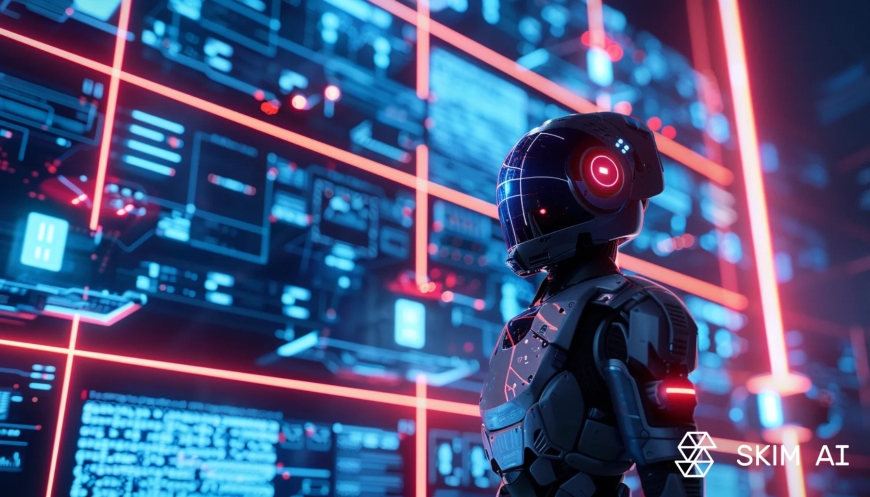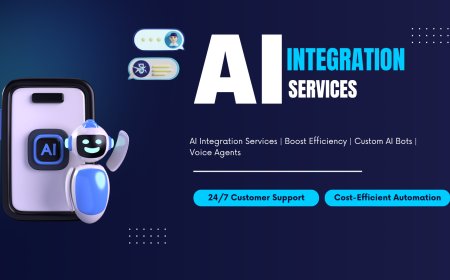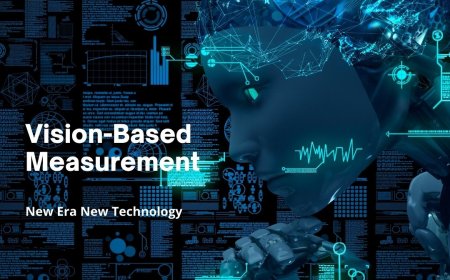What Skills Are Needed for Successful AI Agent Development?
Developing successful AI agents in 2025 requires a blend of technical expertise, strategic thinking, and interdisciplinary knowledge. As AI agents become more autonomous and capable of performing complex, goal-oriented tasks, developers must possess a wide range of skills to design, build, deploy, and scale these intelligent systems effectively.

In 2025, the demand for AI agentsautonomous software entities capable of perceiving, deciding, and actingis rapidly increasing across industries. These intelligent systems are redefining how businesses handle customer service, automate workflows, and interact with data in real time. But while interest in AI agents grows, one critical question remains: What skills are needed to successfully develop AI agents?
Developing AI agents isnt just about knowing how to train a machine learning model or write code. It requires a fusion of advanced technical expertise, strategic design thinking, and business awareness. In this blog, well break down the key skills developers need to thrive in the world of AI agent development, from foundational programming to cutting-edge AI architecture and beyond.
1.Strong Programming Fundamentals
At the heart of AI agent development lies coding expertise. Developers must be proficient in general-purpose programming languages, particularly:
-
Python Widely used for AI and machine learning due to its simplicity and vast ecosystem (NumPy, Pandas, Scikit-learn, PyTorch, TensorFlow).
-
JavaScript/TypeScript Essential for building agents that operate on web platforms or integrate with front-end UIs.
-
Go or Rust Preferred in high-performance or systems-level agent architectures.
Knowledge of object-oriented programming (OOP), modular code design, and testing frameworks is critical to ensure scalable and maintainable AI agents.
2.Machine Learning and Deep Learning Expertise
AI agents rely on advanced machine learning (ML) to make decisions, adapt behavior, and learn from feedback. Developers need to understand:
-
Supervised and unsupervised learning techniques
-
Model evaluation and tuning (precision, recall, F1 scores)
-
Neural networks, transformers, and deep learning
-
Transfer learning for leveraging pre-trained models
-
Fine-tuning large language models (LLMs) like GPT-4, Claude, or LLaMA
Hands-on experience with tools like PyTorch, TensorFlow, and Hugging Face Transformers is a must.
3.Natural Language Processing (NLP)
Since most AI agents communicate using human languagevia chat, voice, or textNLP skills are critical for enabling intelligent conversations and contextual understanding.
Key NLP capabilities include:
-
Intent recognition and entity extraction
-
Semantic search and embeddings
-
Context management in conversation flows
-
Sentiment analysis and emotion detection
-
Prompt engineering and LLM chaining
Familiarity with libraries such as spaCy, Rasa, LangChain, or OpenAIs APIs helps build smarter, human-like agents.
4.Reinforcement Learning and Agent Architectures
Unlike traditional software, AI agents are designed to interact with environments, learn from feedback, and act toward goals. This requires knowledge of:
-
Reinforcement learning (RL) for goal-oriented behavior and decision-making
-
Multi-agent systems (MAS) where several agents cooperate or compete
-
Autonomous planning and reasoning algorithms
-
ReAct (Reason + Act) and memory-based agent models
Understanding how to train agents using reward systems, simulate environments, and optimize long-term performance is key for advanced use cases.
5.Systems Integration and API Management
AI agents rarely operate in isolation. They must connect with CRMs, databases, APIs, or external platforms. This means developers need:
-
RESTful and GraphQL API knowledge
-
Webhook implementation and cloud function triggers
-
Database querying (SQL, NoSQL, vector databases like Pinecone or Weaviate)
-
OAuth and token-based authentication
Agents must seamlessly send, retrieve, and interpret data from multiple sources to act autonomously and contextually.
6.Data Engineering and Preprocessing
For AI agents to learn and perform, they need access to high-quality, well-structured data. Developers must know how to:
-
Collect, clean, and normalize data
-
Handle missing, noisy, or imbalanced data
-
Label training data for supervised tasks
-
Prepare conversational datasets and user feedback loops
-
Integrate real-time data streams
Skills in ETL (Extract, Transform, Load) processes and tools like Apache Airflow, Pandas, or Snowflake are often essential.
7.DevOps and MLOps Knowledge
Deploying, monitoring, and maintaining AI agents in production environments requires DevOps and MLOps expertise. This includes:
-
Containerization with Docker
-
Orchestration using Kubernetes
-
CI/CD pipelines for code and model updates
-
Model versioning and rollback mechanisms
-
Performance monitoring and error logging
MLOps tools like MLflow, Kubeflow, or Weights & Biases ensure that AI agents remain robust and performant over time.
8.Cloud Infrastructure and Serverless Deployment
AI agents are often deployed in cloud-native environments to support scalability, availability, and cost-efficiency. Developers should know:
-
How to deploy agents on AWS, Google Cloud, or Azure
-
Use of serverless functions (e.g., AWS Lambda, Google Cloud Functions)
-
Load balancing, auto-scaling, and failover systems
-
Cost optimization techniques for LLM-heavy workloads
Cloud certifications can give developers a competitive edge in enterprise AI agent projects.
9.Security, Ethics, and Compliance
Security is paramount, especially when AI agents handle sensitive data or interact with users. Developers must understand:
-
Data encryption and secure data storage
-
Authentication and access control best practices
-
GDPR, HIPAA, and CCPA compliance frameworks
-
Bias mitigation and ethical AI practices
-
Prompt injection prevention and input sanitization
Building trustworthy, responsible AI agents is not just good practiceits required for enterprise adoption.
10.Product Thinking and UX Design Awareness
AI agents must deliver tangible business value and a smooth user experience. Thats why developers need a product mindset. Skills include:
-
Understanding user needs and mapping use cases
-
Designing agent personas and dialogue flows
-
Collaborating with UI/UX designers and stakeholders
-
A/B testing and user feedback analysis
-
Optimizing agent behavior for usability and satisfaction
Being able to think beyond the code and focus on user impact sets great AI agent developers apart.
Bonus Skills: Collaboration and Lifelong Learning
The field of AI is fast-evolving. Developers must be willing to:
-
Learn continuously through online courses, GitHub projects, and community contributions
-
Collaborate cross-functionally with data scientists, product managers, marketers, and designers
-
Adapt to new frameworks like agentic workflows, open-source models, and decentralized AI platforms
Soft skills like communication, agility, and curiosity play a critical role in successful, future-proof AI development.
Conclusion
Building intelligent AI agents in 2025 requires more than just coding or ML know-how. It demands a comprehensive skillset that spans programming, machine learning, NLP, cloud infrastructure, systems integration, data engineering, and ethical design.
Whether youre a developer aiming to specialize in AI agents or a business leader assembling a development team, understanding these essential skills is key to success. The future of AI isnt just reactive systemsits proactive, context-aware agents that learn, adapt, and deliver value autonomously.











































